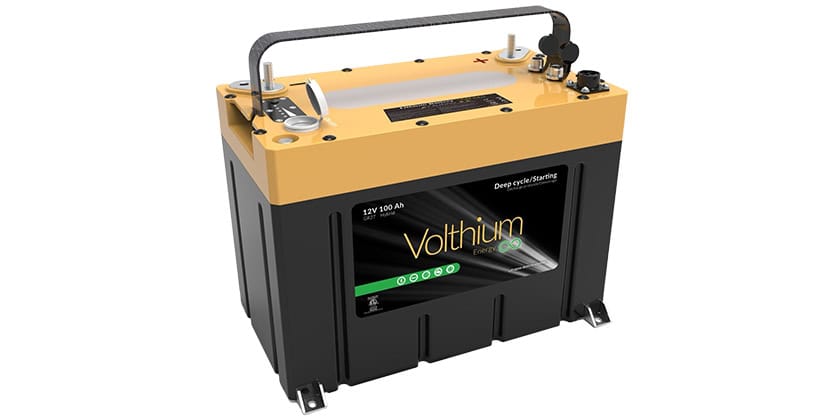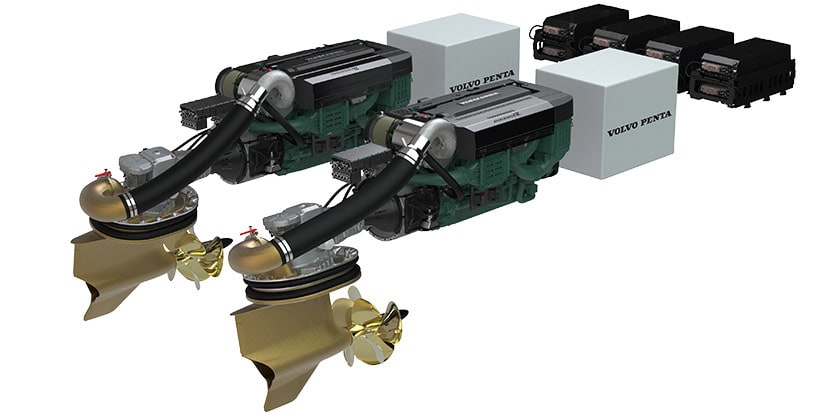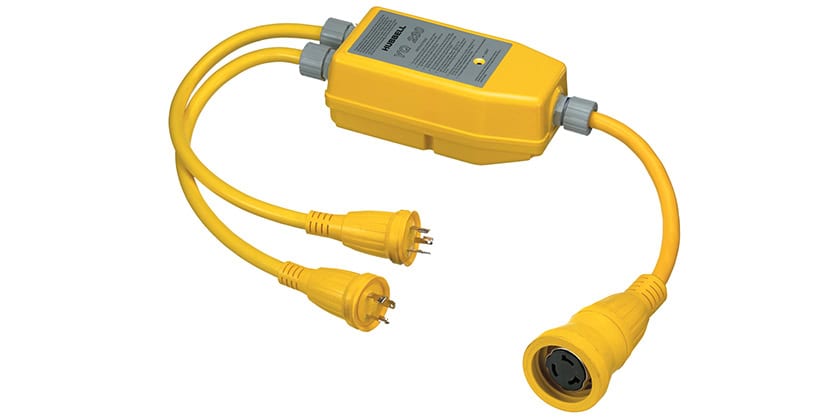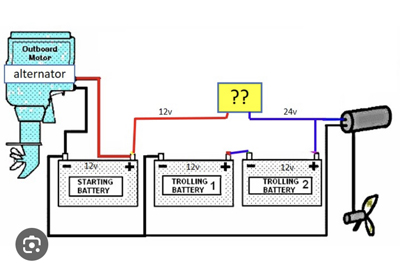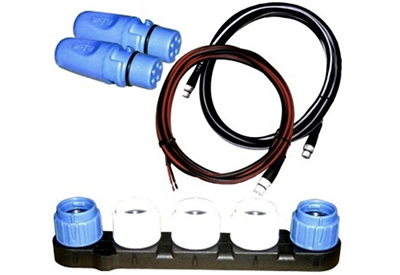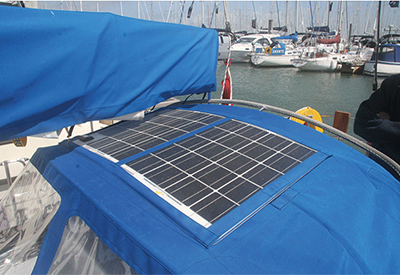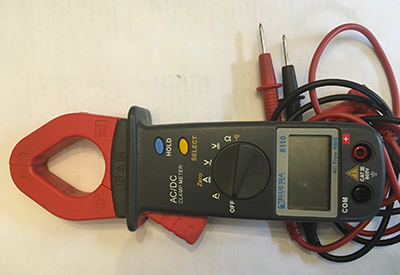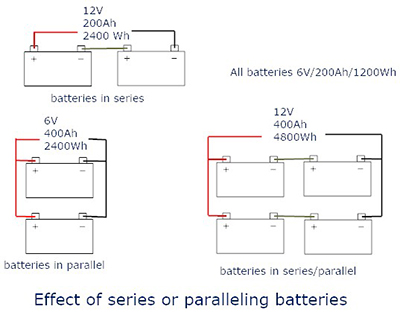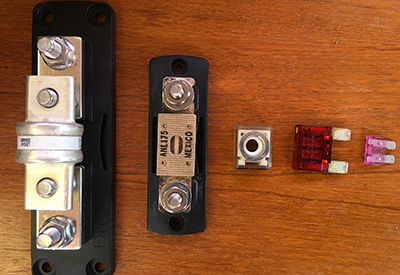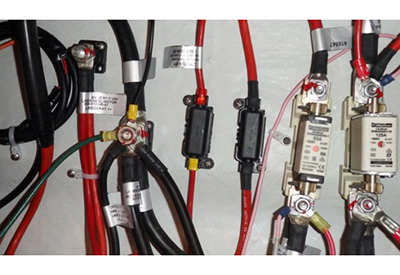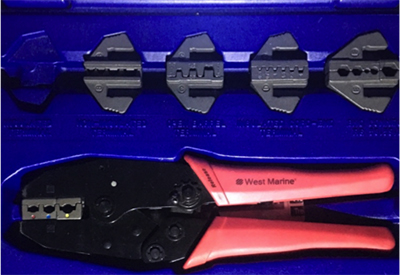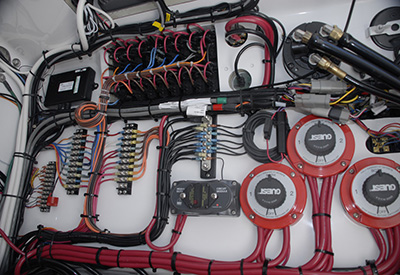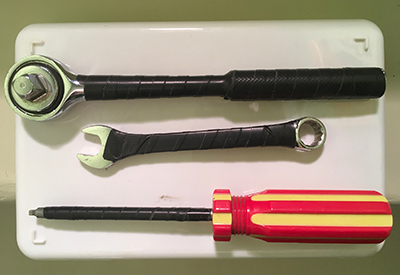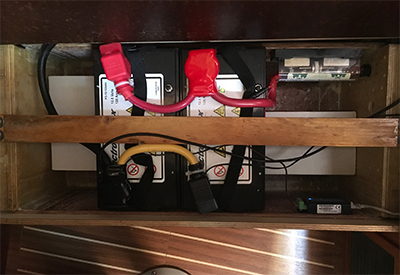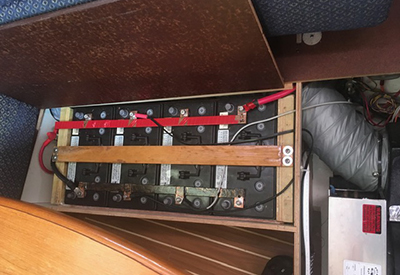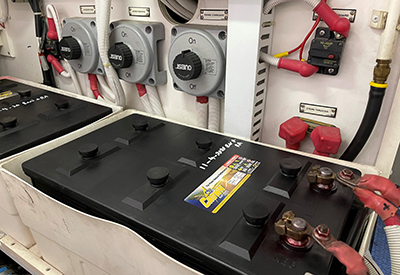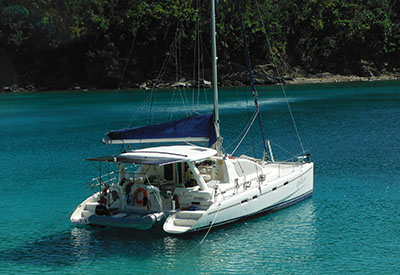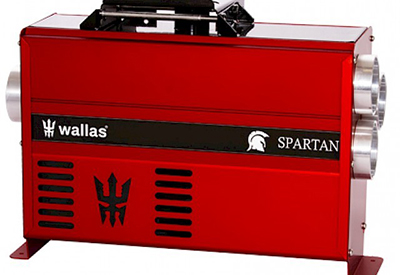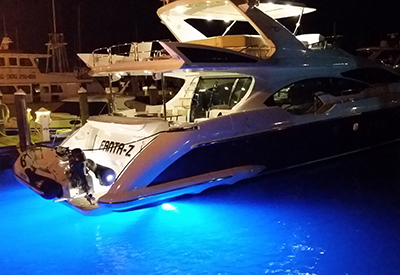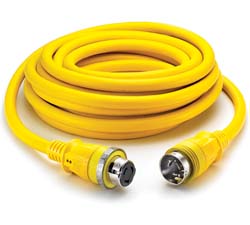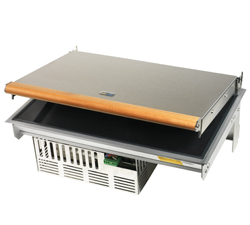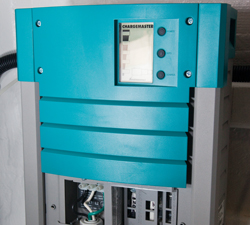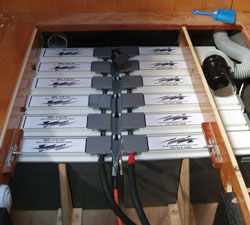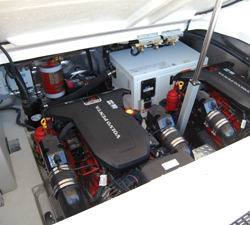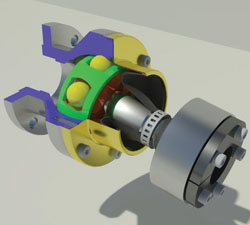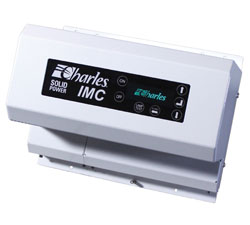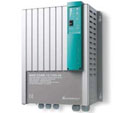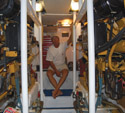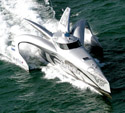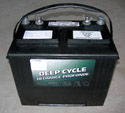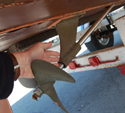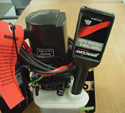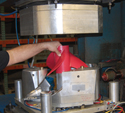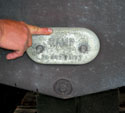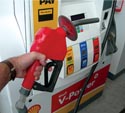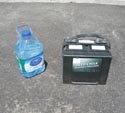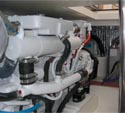July 22, 2025
Written in partnership with Volthium: SafeCharge™ Technology Makes LFP Batteries More Accessible
July 24, 2025 The invention developed by Volthium’s Que…
September 10, 2024
Technology: Volvo Penta Unveils Fully Integrated Hybrid-electric System
Sept 12, 2024 The Volvo Penta hybrid-electric package i…
July 23, 2024
Gear: Power Mismatch? No Problem!
July 25, 2024 Owners who enjoy exploring new marinas so…
July 11, 2023
Ask Andrew: Making Networks Work – It Can Be Done!
Don’t let electronics defeat you. A few years ago, I di…
April 20, 2022
Life onboard easier with a solar charging system
In a previous article, I detailed how we converted our ice box into a fridge/freezer onboard our Catalina 270. I can assure you, it is one of the best modifications we’ve made and truly classifies itself as an upgrade for both convenience and overall enjoyment.
April 6, 2022
Boat Nerd: DC Electrics – Part 7 – final considerations Inverters and Multimeter
Should you have 120VAC devices or appliances (vacuum, expresso maker, induction elements, wired tools) you’d like to run on your vessel when away from the dock you will need an inverter. An inverter takes in DC power and synthesizes 50 or 60Hz AC power at 120 or 220V.
March 23, 2022
Boat Nerd: DC Electrics – Part 6: Battery Banks – Connecting batteries in Series or Parallel
When it comes to building sizable house battery banks, you will probably need more than one battery. Combining multiple batteries in series and/or parallel will allow you to construct a larger battery banks.
March 9, 2022
Boat Nerd: DC Circuits Part 5 – Fuses
Figure 10 shows many of the fuse types commonly found on a vessel and the ones I use most commonly. (but not a complete list by any means). They differ by physical size, current capacity and AIC.
February 23, 2022
Boat Nerd: DC Circuits Part 4 – Bolted connections, current protection
Many wires on a vessel are connected via a bolted lug. ABYC standard E-11 covers normal do and don’ts.
February 8, 2022
Boat nerd: Boat DC Electrics – part 3
The other factor that affects wire size after the “how much current can it handle before burning up” question is, what is the voltage drop across the wire? At 120V if we lose a volt or two along the wire run it’s no big deal. At 12V if we lose a volt or two it’s a very different story.
January 26, 2022
Boat nerd: Boat DC Electrics – part 2: Wiring your Boat
In Part 1, last issue, you reviewed the fundamentals. Now that you understand some of the basic constructs of electrical work we look at getting down to the exercise of determining what wire too use and how do I connect it?
January 12, 2022
Boat nerd: Boat DC Electrics – part 1
This series deals with basic DC boat wiring concepts. From various articles and posts I see, and talking with boating friends, there seems to be mystery for many when it comes to boat electrics. I don’t intend this to be a deep dive but hopefully enough to take away some of the mystery.
November 10, 2021
Boat Nerd: Lithium Batteries – Why? Part 2 Science
Last issue, The Boat Nerd, Mike Wheatstone, introduced us to lithium batteries and explained why they are important. <link to Part 1>. This time, we dig deeper into the technology inside them.
October 27, 2021
The Boat Nerd: Lithium batteries
What is my interest in Lithium batteries? We spend three months of the winter on our Leopard43 “Peregrine” in the Caribbean (at least we did pre-covid!) When our 630Ah AGM batteries died after seven years I decided to go lithium for the reasons outlined below.
May 11, 2021
Longer Battery Life Pt1 – How to get more years from your boat batteries
Early battery failure is costly and frustrating enough. But with a short boating season and unpredictable weather… if you lose a weekend, it hurts. Worse, battery problems can leave you stranded on the water — a safety hazard and a leading cause of tows.
January 27, 2021
The Boat Nerd: Everything you always wanted to know about Solar Power on a Boat
For anyone cruising on a boat that will be away from the dock for any appreciable time keeping the batteries charged becomes an important consideration. The silent and on-going cost-free nature of solar power make’s it an obvious candidate.
January 23, 2019
New Trotac Marine products at VIBS
With the Vancouver International Boat Show just around the corner I contacted Campbell and Alex at Trotac Marine to find out which new products will be highlighted at their booth this year.
March 17, 2016
Light Up Your Cruising Nights
Informed estimates are that barely 10% of Canadian pleasure craft have underwater lighting but in Florida it’s a far higher percentage. And, among new luxury cruisers…
August 20, 2013
Marine Electrical Systems – Part II
This continues our look at improvements to marine electrical systems. Following on our feature on new battery technology, here we review re-charging those batteries, starting with shore cords and isolation transformers. We’ll follow with a subsequent review of generators as well as alternators, dynamos, solar panels and fuel cells. As we noted in the April 2012 Canadian Yachting on page 50, new battery technology is increasingly common in marine applications, but new technology batteries need to be well matched to charging systems and first, you need a power source.
September 13, 2012
Staying Warm or Keeping Cool
Heating and cooling systems add immensely to cruising comfort, whether you boat in cool shoulder seasons or contend with hot, muggy summers. Most boaters learn quickly that extending their season is ideal – Canadian summers are so short, whether you’re on the west coast or the Great Lakes. In central areas, summer is short but it can be hot and humid, and winter is too cold for much cruising in all parts of Canada. Extending into spring and fall makes boating so much more enjoyable, to say nothing of helping justify the costs.
September 6, 2012
Charging
With a source of external power, shore-cord or generator, current still needs to be fed back into your battery banks to reset their chemistry and return them to full electrical output. This requires a battery charger. Here most boaters can rightly claim to confusion. There are dozens of brands available and most products are a “black-box” with little to distinguish one from the others. There is nothing to show a quality comparison or actual performance, save massive ‘spec’ sheets that tell us too much, usually in techo-talk; incomprehensible without an advanced degree.
April 16, 2012
New Technologies Improve on the Flooded Marine Battery
Batteries lie at the heart of most boats. We need them to start our engines, power our electronics, chill our food and sometimes cook our meals. We rely on them but often don’t give them much thought until they fail. Or outlive their normal lifespan of about five years and need to be replaced. With major advances in new technologies reaching the marine marketplace, let’s take a look at alternatives to the traditional lead-acid battery.
February 29, 2012
Searching for the Ideal Engine Room
So, I have to open with a joke. There are two kinds of people in the world: those who divide all the other people in the world into two kinds of people, and those who don’t. For the purposes of this article, I do! To be more specific, I divide boaters into two kinds of people: those who want to play in the engine room and those who don’t. Whether your boat is power or sail, you are almost certain to have an engine and every engine needs maintenance and occasional repair.
October 18, 2011
Lining Up the Repower Project
Getting the owner of an older sailboat to spend the money on a brand new diesel auxiliary is a challenge for many marine service businesses. Often the costs involved in the purchase and installation of a new powerplant carries a bill that can make most recreational boaters blush and run away. Some vessels, however, are built for the long haul and replacing the diesel engine on an otherwise sound mechanical vessel can extend the life of the boat at a fraction of the cost of the replacement of the entire boat. Newer marine diesels are also more fuel efficient, smoother, quieter, lighter, and pack far more horsepower into smaller packages.
August 23, 2011
Smart Battery Chargers for Smart Boaters
Smart chargers are not new, but they are getting smarter all the time and that’s a great thing. In almost every issue of Canadian Yachting, we suggest you add some new or upgraded piece of equipment to your boat and virtually everything runs on electricity. The highest draw equipment onboard would be your windlass, air conditioning and refrigeration, but new entertainment systems, navigation equipment and galley items can all add big load increases. Complicating this, battery manufacturers are always working to improve the performance of their products and new batteries can change the “charging profile” of the battery bank.
May 8, 2011
Add an Isolation Transformer to your boat
First, if you just remember one thing from this article, remember – never swim in a marina.Why? Because in a marina, you have people, water and electricity. When everything is working properly, that is a recipe for fun and great times. But, if just one wire chafes through its insulation and shorts to ground, there is the potential for tragedy.
January 12, 2011
Rigged to Run Hard: Engine Room Ideas and More
We recently spent time aboard a 54′ Bertram called the Maple Leaf and the boat’s owner made a great comment about his boat. He said that he has not fixed up a used boat; his boat is in the process of 22 years of constant improvement! I loved that attitude. Bertram’s 54 was designed and built as a sport fishing yacht and the only real advantage of moving to a new boat would be that it was new.
January 5, 2011
Important New Engine Choices from Cummins MerCruiser Diesel
The recent Miami International Boat Show (February 14-18, 2007) was the launching pad for a host of new products, most notably from the engine manufacturers. Among the biggest news stories in the diesel field was that Cummins MerCruiser Diesel (CMD) has announced that they have started shipment of pre-production Zeus pod drive systems.
December 24, 2010
One Watt: Each Watt Counts Because They All Add Up
When the last dock line is pulled onboard and you are floating free in the water, at that moment, the vessel that you are on is isolated from any of the support facilities that are so much a part of our everyday lives. You are on your own! If your planning has gone well and you have educated yourself on the systems onboard, you can look forward to an excellent and enjoyable boating experience.
November 2, 2010
Driveline Details Deliver Delightful Days
When was the last time you sent your propeller shaft to the machine shop to be checked? How old are your engine mounts? Have you replaced your cutlass bearing recently? Do I sound like your mother? Well, if she were here, she’d be giving you some important advice!
November 2, 2010
Big Box Botch-up or Why You Need OEM Marine Lubricants
Far too many people do this in the spring; drop into the nearest big box store and grab a season’s supply of universal, discount-priced 2-stroke oil, car oil for their 4-stroke outboard and inboard engines and maybe some all-purpose grease for their cables and steering gear.
October 28, 2010
Your propeller – The Unsung Hero of Boating
Doesn’t a propeller look simple? Visually, the size and shape makes it obvious that a propeller kind of “screws” its way through the water and to a casual observer, it looks to be one of the simplest parts on the whole boat.
May 11, 2010
Avoid Breakdowns and Expenses
Create a Custom Checklist for Your Boat Almost every boat in Canada gets “winterized” in the fall and “summerized” in the spring. Here is an easy way to make sure it’s always done properly, to avoid breakdowns and expenses. We suggest that you invest in about two hours of time from the marine technician at your dealership and together, create a winterizing and summerizing checklist.
November 14, 2009
Coping with Ethanol Enhanced Fuel
In both California and now in Florida, class action suits have been launched against gasoline companies alleging that they knowingly sold gasoline to boaters containing ethanol and that the ethanol would attack and damage the fibreglass fuel tanks in older boats.
November 14, 2009
Is a Battery Left Over a Year Any Good?
I’ve never seen an official survey on this, but I’ll bet the primary reason people wind up poking around in their engine room is because they have battery problems. Especially with today’s new fuel injected engines; your battery only needs to crank the engine over a couple of turns and it starts right up, running happily with your alternator charging and all systems go.
November 14, 2009
Reducing Engine Noise
A quiet boat is a good boat. “Quiet” says well engineered, solidly built, comfortable to ride in…new. New boats are quiet. Old ones are noisy – power or sail. Why is that? In a recent technical presentation, we learned that the life expectancy of the sound absorbing materials in most new boats is about 10 years.

